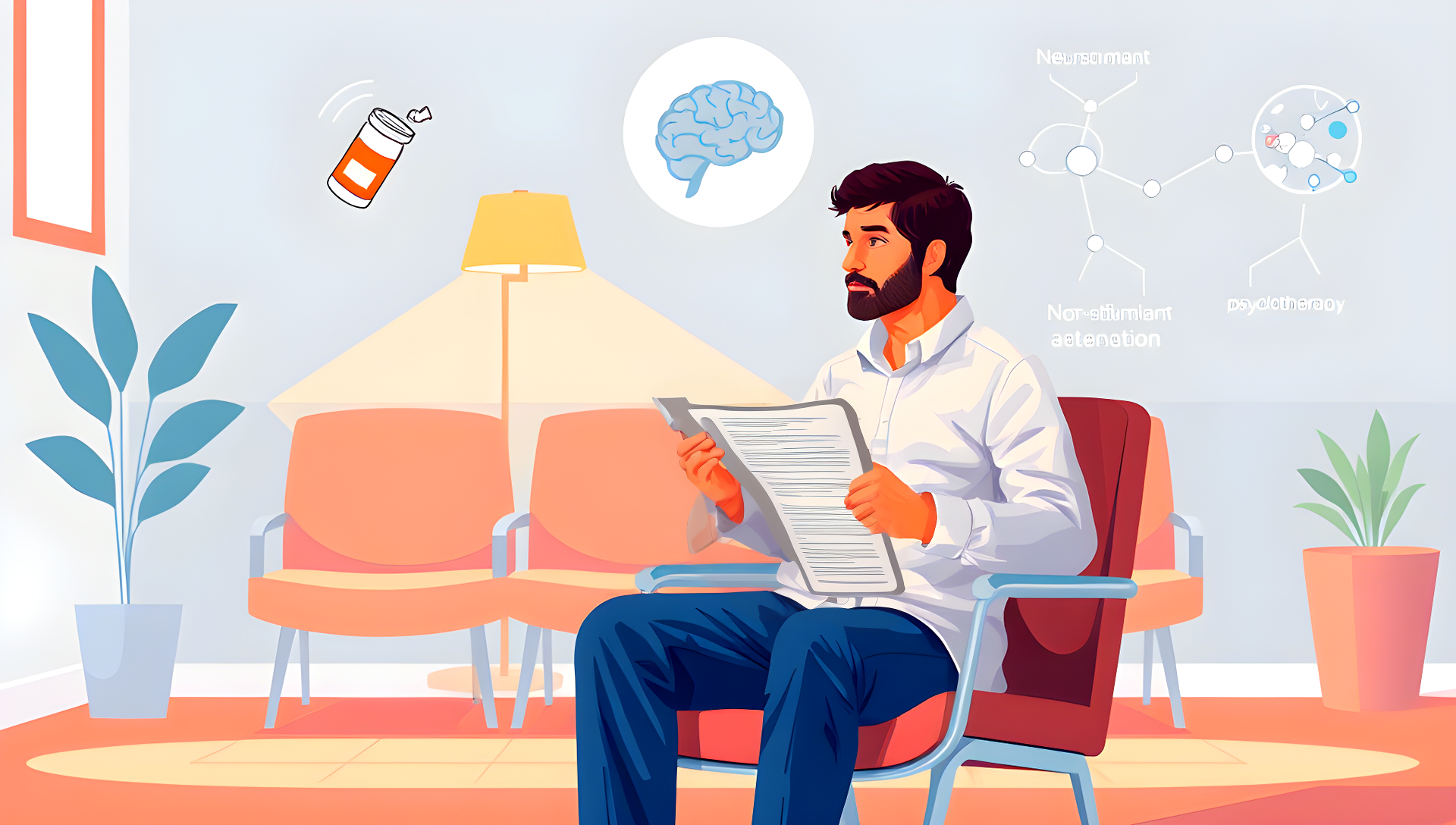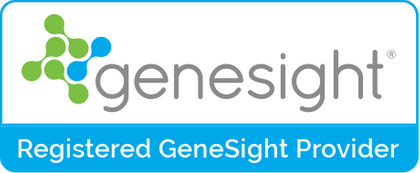Discovering the Silent Struggles: Unveiling the Hidden ADHD Symptoms in Adults
December 18, 2024 | HIAAH
Do you know that ADHD is not just a childhood condition? Many adults silently struggle with ADHD, and their daily lives are affected by a range of hidden symptoms. In this eye-opening article, we delve into the world of adults living with ADHD and shed light on the often unseen challenges they face.
While hyperactivity may diminish with age, adults with ADHD still grapple with a host of other symptoms, such as forgetfulness, difficulty concentrating, impulsivity, and poor time management. These symptoms can manifest in various ways, leading to missed deadlines, strained relationships, and diminished self-esteem.
But why do these symptoms often go unnoticed or unrecognized in adults? The answer lies in the misconception that ADHD is solely a childhood disorder. As a result, many adults struggle in silence, unaware that their difficulties stem from undiagnosed ADHD.
Through personal stories, expert insights, and evidence-based research, we aim to illuminate the hidden struggles of adults with ADHD. Understanding these symptoms can help create a more supportive and inclusive society for individuals living with this often misunderstood condition.
Commonly known symptoms of ADHD in adults
Attention Deficit Hyperactivity Disorder (ADHD) is associated chiefly with energetic and impulsive behaviors predominantly observed in children. However, as individuals transition into adulthood, many of these symptoms evolve and may even become more subtle. Commonly recognized symptoms of ADHD in adults include inattention, hyperactivity (though often less pronounced), and impulsivity. These core characteristics can significantly impact the daily functioning of those affected, manifesting in various aspects of their lives, from excellent personal relationships to everyday professional responsibilities.
Inattention may present as a chronic inability to focus or a tendency to become easily sidetracked. Adults with ADHD often experience challenges in organizing tasks, following through on commitments, and maintaining attention during lengthy discussions or meetings. This lack of focus can lead to frequent misplacement of items, overlooking details in work or personal life, and difficulty completing projects. Such symptoms can create cycles of frustration and self-blame as individuals grapple with the realization that factors beyond their conscious control hamper their productivity.
While hyperactivity typically diminishes in adulthood, it can still be observed through restlessness or an internal sense of agitation. Many adults with ADHD find it challenging to relax, often feeling the need to keep themselves busy or fidget during sedentary tasks. This agitation can manifest in behaviors such as tapping fingers, bouncing legs, or an overwhelming urge to move around. Although outward hyperactivity may not be as visible, the internal experience of being unable to sit still can be just as disruptive to an adult's quality of life.
Impulsivity in adults with ADHD can take various forms, including hasty decision-making, interrupting others in conversations, or engaging in risky behaviors without considering repercussions. This impulsive nature can lead to difficulties in managing finances, adhering to plans, and maintaining stable relationships, as unconsidered actions may create tension and misunderstandings. Recognizing these commonly known symptoms is crucial, as they lay the foundation for understanding the broader spectrum of ADHD's impact on adult lives.

The hidden and lesser-known symptoms of ADHD in adults
While the core symptoms of ADHD are widely recognized, there exists a range of hidden and lesser-known symptoms that can significantly affect adults. Emotional dysregulation is one such symptom that often goes unnoticed. Adults with ADHD may experience intense emotions, leading to mood swings or feelings of frustration and irritability. This emotional volatility may impact self-perception and strain relationships, as loved ones may struggle to perceive the underlying reasons for these emotional outbursts.
Another less recognized symptom is difficulty with task initiation and completion. Adults with ADHD may find it challenging to begin tasks, particularly if they perceive them as tedious or overwhelming. This can lead to procrastination, resulting in missed deadlines and increased stress. The struggle to transition between tasks can further exacerbate feelings of inadequacy and failure, contributing to a cycle of avoidance and low self-esteem. Understanding this hidden aspect of ADHD is essential for fostering empathy toward those who navigate these challenges daily.
Additionally, many adults with ADHD experience a phenomenon known as "time blindness." This term refers to the difficulty in perceiving the passage of time, leading to problems with punctuality and time management. Tasks may take longer than anticipated, and appointments can be forgotten or missed altogether. Time blindness can create significant anxiety, as individuals often feel overwhelmed by their inability to keep track of time and meet expectations, both personally and professionally. Recognizing these lesser-known symptoms can facilitate better understanding and support for adults living with ADHD.
Challenges faced by adults with ADHD in their personal lives
Adults with ADHD encounter numerous challenges within their personal lives, often leading to feelings of disconnection and frustration. One of the most significant challenges is maintaining relationships. The impulsivity and mood instability associated with ADHD can create misunderstandings and conflicts with partners, family members, and friends. For example, an impulsive comment made during a conversation may unintentionally hurt a loved one, leading to resentment or a sense of disconnect. The inability to manage emotions effectively can further exacerbate these situations, creating a cycle of conflict and reconciliation that can be exhausting for everyone involved.
Another challenge lies in the realm of parenting. Adults with ADHD may struggle to establish routines and maintain consistency in their parenting practices. This inconsistency can lead to feelings of self-doubt and guilt, mainly when children exhibit behavioral issues that the parent's struggles may exacerbate. Additionally, the demands of parenting can amplify symptoms of ADHD, making it challenging to focus on the needs of children while managing personal stressors. This can create a complex dynamic where adults feel overwhelmed by their responsibilities, potentially impacting their relationships with their children.
Furthermore, adults with ADHD often face difficulties in managing household responsibilities. Routine tasks, such as organizing, cleaning, and meal planning, can become daunting obstacles. The inability to maintain focus and motivation can lead to cluttered living spaces and a chaotic environment, creating frustration and embarrassment. This disorganization can also impact social interactions, as individuals may feel ashamed to invite friends or family into their homes, fearing judgment over their living conditions. Recognizing these challenges is vital for fostering a supportive environment for adults with ADHD.

Impact of ADHD on professional life and work performance
The impact of ADHD on professional life can be profound, affecting job performance, career advancement, and overall job satisfaction. Many adults with ADHD struggle with adhering to deadlines, managing time effectively, and maintaining focus on tasks. This can lead to a pattern of underperformance, which may hinder career growth and result in job instability. As a result, adults with ADHD may find themselves frequently changing jobs, seeking environments that are more accommodating to their needs, or even facing unemployment due to their struggles.
Moreover, adults with ADHD often experience challenges in workplace relationships. Impulsivity may result in interrupting colleagues during meetings or failing to listen attentively, causing friction within teams. Emotional dysregulation can also lead to heightened stress levels, impacting interactions with supervisors and peers. These challenges can create a negative feedback loop, where professional performance declines, leading to further stress and feelings of inadequacy. Consequently, adults with ADHD may feel marginalized in their work environments, contributing to a sense of alienation and dissatisfaction.
Additionally, the inability to manage distractions effectively can hinder productivity in a workplace setting. Open office layouts, frequent interruptions, and the constant presence of digital devices can all exacerbate the difficulties faced by individuals with ADHD. This can lead to emotional strain, as they may feel incapable of meeting the expectations placed upon them. Addressing these mental obstacles requires a nuanced understanding of how ADHD affects work performance and a commitment to creating more inclusive workplace environments that accommodate diverse needs.
Strategies for managing ADHD symptoms in daily life
Managing ADHD symptoms in daily life requires a multifaceted approach that combines self-awareness, organization, and support. One effective strategy is the development of structured routines. Establishing a consistent daily schedule can provide a sense of predictability, helping adults with ADHD to manage their time more effectively. By breaking tasks into more minor, realistic actions and setting specific deadlines, individuals can reduce feelings of overwhelm and improve their focus on completing tasks.
Utilizing tools such as planners, digital calendars, and reminders can also aid in managing ADHD symptoms. These tools can help persons stay organized and keep track of appointments, deadlines, and daily responsibilities. Visual aids, such as color-coded charts or checklists, can further enhance organization, providing a clear overview of tasks that need attention. Incorporating technology, such as productivity apps, can also streamline daily task management and foster accountability.
Mindfulness and coping practices play a crucial role in managing ADHD symptoms. Engaging in activities that support unwinding, such as meditation, yoga, or deep-breathing exercises, can help reduce stress and improve emotional regulation. Regular physical activity is another effective strategy, as exercise has been shown to enhance focus and overall wellbeing. By prioritizing self-care and adopting healthy habits, adults with ADHD can create a supportive environment that fosters better symptom management.

Seeking professional help for adult ADHD diagnosis and treatment
Recognizing the need for professional help is a critical step in managing ADHD symptoms effectively. Adults who suspect they may have ADHD should consider seeking an in-depth assessment from a qualified mental health professional. This process often involves a thorough assessment of symptoms, medical history, and the impact of these symptoms on daily functioning. A proper diagnosis can provide clarity and open the door to appropriate treatment options tailored to individual needs.
Treatment for adult ADHD typically includes a combination of medication, psychotherapy, and behavioral interventions. Neurostimulant medications, such as amphetamines or methylphenidate, are commonly prescribed to help improve attention and impulse control. Non-stimulant medications may also be considered, depending on individual preferences and medical history. Counseling approaches, including CBT, empower adults to overcome ADHD-related emotional challenges and enhance self-awareness.
Additionally, ongoing support and follow-up are essential components of effective ADHD management. Regular check-ins with mental health providers can help individuals monitor their progress, adjust treatment plans as needed, and address any emerging challenges. Building a supportive network, whether through family, friends, or professional support groups, can provide encouragement and accountability, fostering a sense of community for adults navigating the complexities of ADHD.
Support groups and resources for adults with ADHD
Support groups can serve as a vital resource for adults with ADHD, providing a platform for sharing experiences, challenges, and coping strategies. These groups foster a sense of community and connection, allowing individuals to realize they are not alone in their struggles. Many organizations, such as CHADD (Children and Adults with Attention-Deficit/Hyperactivity Disorder) and ADHD Coaches Organization, offer resources and support networks tailored explicitly for adults with ADHD.
In-person and online support groups can facilitate discussions around various topics, including employment challenges, relationship dynamics, and effective management strategies. Sharing personal stories can create an atmosphere of understanding and validation, helping individuals to feel more empowered in their journey. Additionally, these wonderful groups often provide access to valuable resources, such as workshops, webinars, and educational materials, designed to enhance knowledge and skills related to ADHD management.
Furthermore, numerous online platforms and forums exist where adults with ADHD can connect and seek advice. Social media groups, blogs, and dedicated websites offer spaces for individuals to share insights, ask questions, and learn from one another. Engaging with these resources can help build a sense of belonging and community, reinforcing the idea that individuals with ADHD can thrive and succeed with the proper support and information.
Coping mechanisms and lifestyle changes for better ADHD management
Implementing effective coping mechanisms and lifestyle changes is essential for adults with ADHD seeking to improve their daily functioning and overall wellbeing. One practical approach is to cultivate a consistent sleep routine. Adequate sleep is critical for cognitive health and emotional regulation, and adults with ADHD may particularly benefit from prioritizing restorative sleep. Establishing a calming bedtime routine, limiting screen time before bed, and creating a sleep-friendly atmosphere can help promote better sleep quality.
Another vital lifestyle change involves dietary considerations. Nutrition plays a vital contribution to brain wellness and can impact ADHD symptoms. Fueling your body with balanced whole-food nutrition, such as great fruits, awesome vegetables, perfect lean proteins, and whole grains, can support cognitive function. Additionally, some individuals may find that reducing sugar intake or avoiding certain food additives can positively affect their focus and mood. Staying hydrated is also vital, as dehydration can exacerbate attention difficulties.
Finally, fostering social connections and engaging in purposeful activities improves overall wellbeing for adults with ADHD. Developing supportive networks with family, friends, and peers combats isolation. Participating in hobbies or interests that ignite passion can also be a constructive outlet for energy and creativity, contributing to improved emotional wellbeing. By embracing these coping mechanisms and lifestyle changes, adults with ADHD can take proactive steps toward better management of their symptoms.
Conclusion: Understanding and supporting adults with ADHD
In conclusion, recognizing and understanding the silent struggles faced by adults with ADHD is crucial for fostering a more inclusive and supportive society. By acknowledging both the commonly known and lesser-known symptoms, we can begin to dismantle the misconceptions surrounding ADHD as a childhood-only condition. Creating awareness about the challenges encountered in personal and professional lives can help cultivate empathy and understanding among peers, families, entrepreneurs and employers.
A strong support network featuring professionals, peers, and strategies helps adults manage ADHD complexities. Encouraging individuals to seek help and fostering open conversations about mental health can contribute to breaking the stigma associated with ADHD. By promoting understanding and acceptance, we can empower adults with ADHD to embrace their uniqueness and thrive in various aspects of life.
Ultimately, as we work towards a more informed and compassionate society, we must prioritize the needs of adults living with ADHD. By sharing knowledge, resources, and support, we can help create an environment where individuals are equipped to manage their symptoms effectively, fostering a sense of belonging and acceptance. Understanding and supporting adults with ADHD is not merely an act of kindness but a step towards a bright, equitable, and compassionate world for all.



